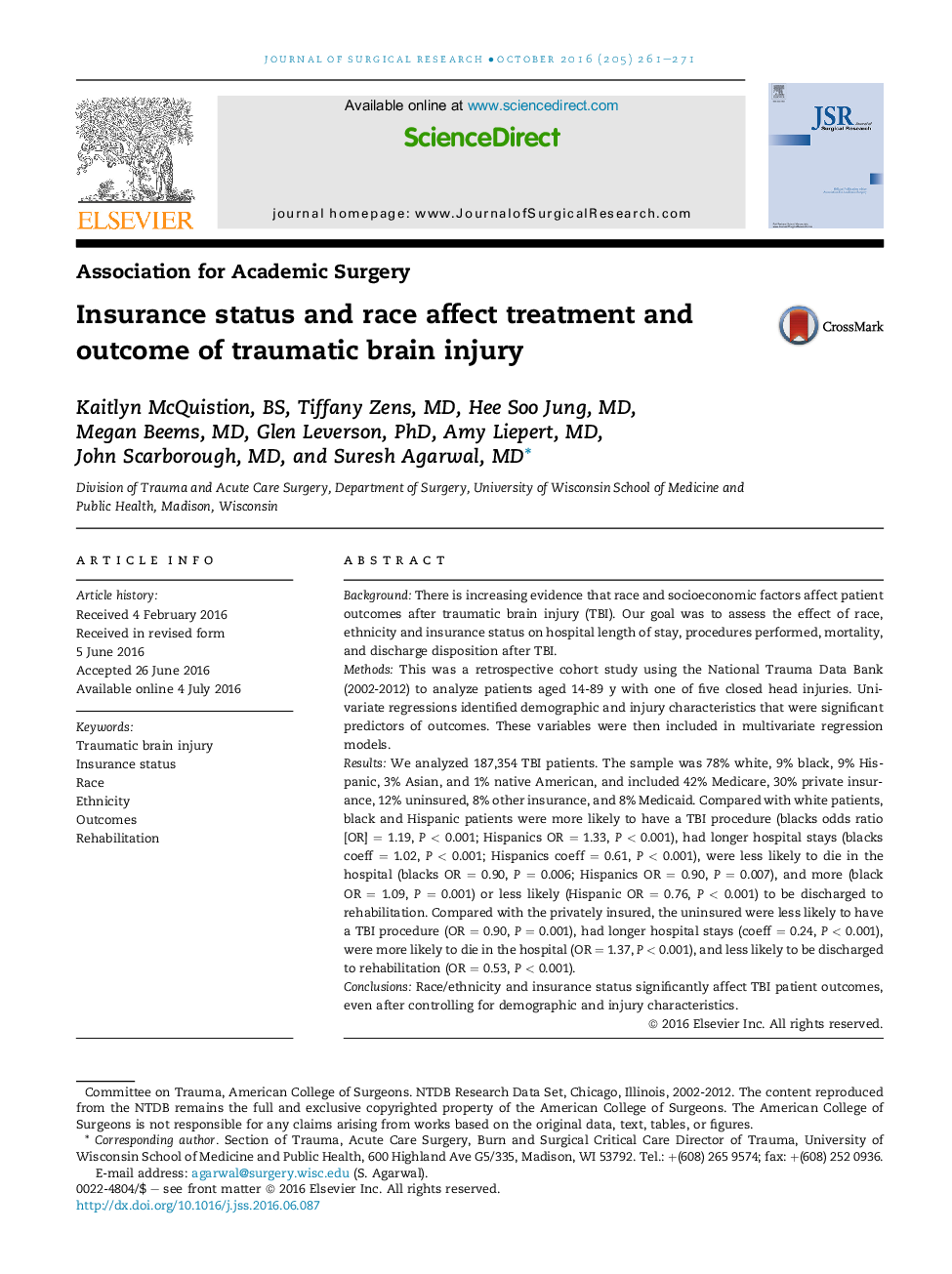| Article ID | Journal | Published Year | Pages | File Type |
|---|---|---|---|---|
| 4299049 | Journal of Surgical Research | 2016 | 11 Pages |
BackgroundThere is increasing evidence that race and socioeconomic factors affect patient outcomes after traumatic brain injury (TBI). Our goal was to assess the effect of race, ethnicity and insurance status on hospital length of stay, procedures performed, mortality, and discharge disposition after TBI.MethodsThis was a retrospective cohort study using the National Trauma Data Bank (2002-2012) to analyze patients aged 14-89 y with one of five closed head injuries. Univariate regressions identified demographic and injury characteristics that were significant predictors of outcomes. These variables were then included in multivariate regression models.ResultsWe analyzed 187,354 TBI patients. The sample was 78% white, 9% black, 9% Hispanic, 3% Asian, and 1% native American, and included 42% Medicare, 30% private insurance, 12% uninsured, 8% other insurance, and 8% Medicaid. Compared with white patients, black and Hispanic patients were more likely to have a TBI procedure (blacks odds ratio [OR] = 1.19, P < 0.001; Hispanics OR = 1.33, P < 0.001), had longer hospital stays (blacks coeff = 1.02, P < 0.001; Hispanics coeff = 0.61, P < 0.001), were less likely to die in the hospital (blacks OR = 0.90, P = 0.006; Hispanics OR = 0.90, P = 0.007), and more (black OR = 1.09, P = 0.001) or less likely (Hispanic OR = 0.76, P < 0.001) to be discharged to rehabilitation. Compared with the privately insured, the uninsured were less likely to have a TBI procedure (OR = 0.90, P = 0.001), had longer hospital stays (coeff = 0.24, P < 0.001), were more likely to die in the hospital (OR = 1.37, P < 0.001), and less likely to be discharged to rehabilitation (OR = 0.53, P < 0.001).ConclusionsRace/ethnicity and insurance status significantly affect TBI patient outcomes, even after controlling for demographic and injury characteristics.
